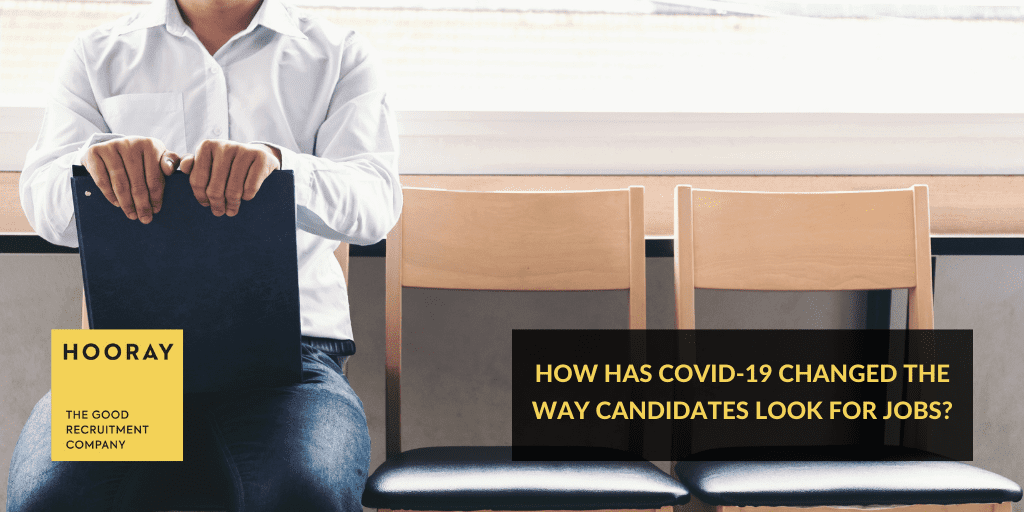How has COVID-19 changed the way candidates look for jobs?

To say that the coronavirus has impacted our everyday lives, would perhaps be the greatest understatement of all time. With the economy in a state of flux, and demand for talent across every sector rising and falling seemingly on a daily basis, it is a strange and frustrating time for job seekers. So, how has the pandemic shaped changed the way in which people are searching for jobs?
Remembering what is important:
Ask any job seeker pre-COVID-19 what attracted them most to a new role, and the chances are that salary and benefits would be their top priority, followed by opportunities for career progression and organisational culture. Fast forward to today and while these remain important, they no longer serve as the key defining criteria when deciding which employer to apply and work for.
Rather, candidates are increasingly focused on working for those employers who are socially-led and have a ‘purpose.’ In other words, they stand for something and extol a set of values that the candidates can relate to. For employers, the need to demonstrate and clearly communicate their values to future employees has never been greater.
Candidates are ditching the hyperbole:
Recruitment marketing has become a mix of science and art in recent years. As the proverbial war for talent has continued to escalate, employers have faced an increasing challenge to position themselves as an organisation of choice both for those people with the skills and expertise they really need to attract, and to retain that which they already have.
This is a challenge which is set to intensify in the coming months due to the unfortunate rise in people entering the jobs market as a consequence of the pandemic. It is also likely to see job seekers ignore any attempts by employers to wow them; rather, candidates will be more focused and receptive to those employers who can clearly address the “what’s in it for me if I work for you?” factor.
Out of office:
One of the biggest changes to workplace culture has been the physical space itself. When the lockdown began, businesses and their employees were forced to work from home where possible. Before the pandemic, many of these businesses would never have considered introducing remote working or similar flexible schemes for their people, but the evidence of the past few months suggests it is not only possible but profitable too.
There has been a plethora of surveys published in the media in recent weeks that have all produced similar findings – that employees will be looking to employers (both current and future) to provide some degree of flexible working moving forward. Of course, such practises do not suit each individual.
However, many job seekers will be looking for and expecting businesses to consider a blended approach to office/home working – for personal finance reasons, mental health or even to reduce their impact on the environment by cutting down on the number of journeys taken.
Need not want:
The reality of the situation right now is that there will be many employees with little or no desire to jump ship and swim the seas in search of a new opportunity. This will be partly down to a sense of loyalty to the employer perhaps given what might have been a difficult few months, but also the sense of security that often comes when working for the same company for some time. This may also be coupled with a fear that if the economy should turn once more, they may find themselves in a ‘last in, first out’ situation with a new organisation.
So, employers looking to attract these passive candidates are going to have to work that bit harder to convince them that a move will be a sound one. To do that effectively will mean ‘selling’ each of the three points outlined above and demonstrating not only how much the candidate is valued but also the contribution their possible appointment will make to the organisation itself.
The last few months have changed the recruitment world in many ways – for the better. Today’s job seekers are placing values and ethics at the top of their list of priorities and employers in turn are realising they have a duty to be more responsible to the people they employ, the markets they serve, and the environment within which they operate.